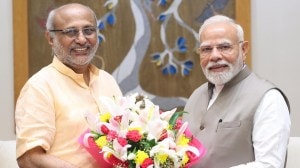I-T initiates tax recovery steps from Dutch arm
The government asserts that taxation is a sovereign function and it shall not subject itself to international arbitration on the matter.
Even as an international arbitration has been initiated in the matter, the income tax department has started taking steps towards recovering the capital gains tax from British telecom giant Vodafone’s Dutch arm for its acquisition of Hutch Essar in 2007 that led to the company’s entry into the country.
The Supreme Court had in 2012 January struck down the tax as not payable but the government subsequently amended the law with retrospective effect to validate its tax claim, stirring up a controversy.
Sources confirmed that the department has sent notices to Vodafone International Holdings asking it to file fresh tax returns for assessment years 2008-09 and 2009-10 under section 148 of the Income Tax Act, the first step towards a re-assessment to capture the income that has previously escaped assessment and taxation. Vodafone PLC spokesperson, however, declined to comment on the issue. Vodafone India has not been served any notice, government sources said.
[related-post]
Vodafone chose to go for international arbitration to seek relief on the potential tax claim rather than challenging the validity of the retrospective amendment to the law in a domestic court.
Vodafone’s purchase of Hutch Essar from CGP Investments of Cayman Islands for $11 billion had led to a principal capital gains tax demand of over Rs 8,000 crore on which penalty and interest over the last seven years had led to the department calculating a total outstanding demand of more than double the original claim.
The process of arbitration between the company and the government has so far not reached anywhere as both the parties are yet to agree on a third arbitrator.
The government asserts that taxation is a sovereign function and it shall not subject itself to international arbitration on the matter. It has appointed an arbitrator for the sole purpose of putting this point across in the arbitration process.
With the government taking such a position, the company may have to approach domestic courts for enforcing any favourable arbitral award it might get. FE
Photos



- 01
- 02
- 03
- 04
- 05



























